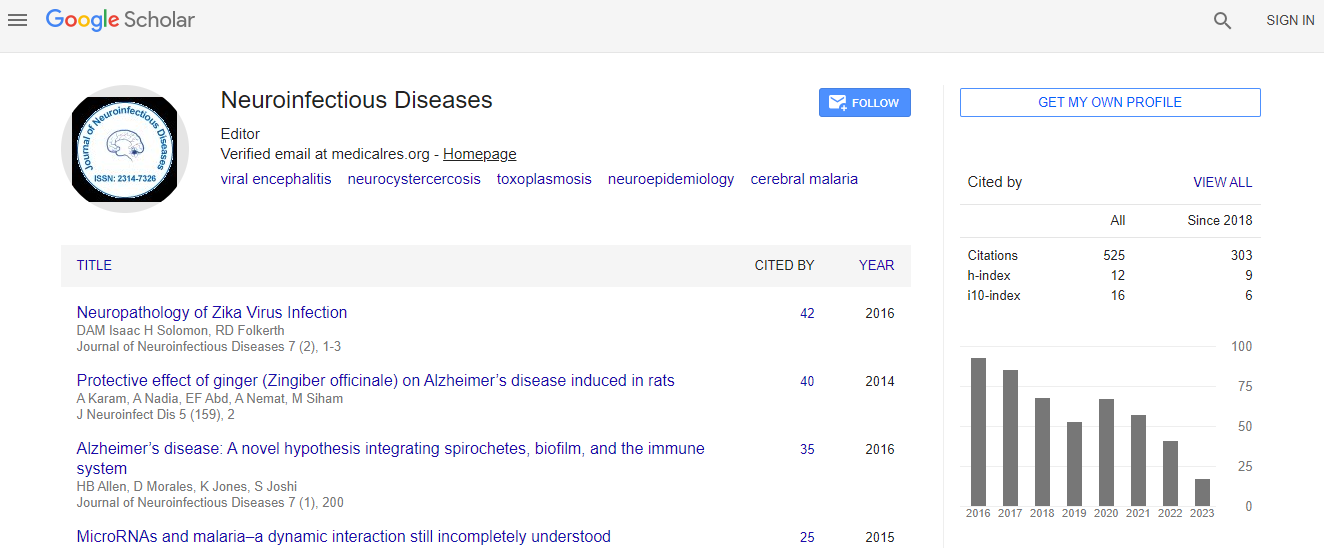Case Report
Case of Cerebral Hydatid Cyst, Rare Parasitic Brain Infection Presenting as Refractory Epilepsy
| Arif Hussain Sarmast*, Humam Nisar Tank, Nayil Khursheed Malik, Basharat Mujtaba and Abrar Ahad Wani | |
| Department of Neurosurgery, Sher I Kashmir Institute of Medical Sciences, Srinagar, India | |
| Corresponding Author : | Arif Hussain Sarmast Dalipora kawadara, Srinagar Kashmir, 190002, India Tel: 91 9906859742 E-mail: arifhsarmast@gmail.com |
| Received: July 18, 2015 Accepted: July 18, 2015 Published: July 22, 2015 | |
| Citation: Sarmast AH, Tank HN, Malik NK, Mujtaba B, Ahad Wani A (2015) Case of Cerebral Hydatid Cyst, Rare Parasitic Brain Infection Presenting as Refractory Epilepsy. J Neuroinfect Dis 6:180. doi:10.4172/2314-7326.1000180 | |
| Copyright: © 2015 Sarmast AH, et al. This is an open-access article distributed under the terms of the Creative Commons Attribution License, which permits unrestricted use, distribution, and reproduction in any medium, provided the original author and source are credited. | |
| Related article at Pubmed, Scholar Google | |
Abstract
Cystic hydatidosis is a rare disease which mainly involves the liver and lungs, and rarely the brain. Cysts may be single or multiple. Usually neurohydatidosis with features of raised intracranial pressure such as headache and nausea vomiting or focal neuro-deficits but rarely as refractory epilepsy. We had a 10 year old boy presenting with refractory epilepsy without any focal localizing neurological signs. Brain imaging revealed a huge cystic structure involving the left side of the brain. A diagnosis of brain hydatid cyst was made and the patient was operated on. A large cyst was successfully delivered without rupture. Antihelminthic medication was started and the patient was discharged with no new seizure episodes during 6 month follow up. Hydatid cysts must not be overlooked as a differential diagnosis in children with cystic brain lesions. Surgery is the standard method of treatment, and it is vital to recover the cyst without rupture to avoid severe complications and recurrence.

 Spanish
Spanish  Chinese
Chinese  Russian
Russian  German
German  French
French  Japanese
Japanese  Portuguese
Portuguese  Hindi
Hindi 
